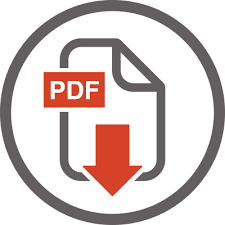With a Simple Fix, U.S. Administrators Can Ease Sugar Shortage for American Consumers and Sugar-Using Companies and Help Avoid Food Supply Chain Disruptions
Washington, D.C. (July 20, 2023) — The Sweetener Users Association (SUA) today released an issue brief explaining that, when domestic sugar supplies are short and import quotas need to be increased, the use of an outdated standard for refined sugar results in imported sugar that fails to meet the needs of consumers and sugar-using companies. The brief offers simple solutions U.S. officials can implement to fix this problem.
Under the current standard, any sugar above 99.5 polarity is considered “refined” and eligible to fill refined sugar quotas. However, for refined sugar to be usable by consumers and most sugar-using companies, modern standards require a polarity of 99.8 or 99.9. Thus, most of the so-called “refined” sugar that is currently imported must be further processed, which delays its use at times when the availability of sugar for immediate use is already a serious concern.
“Much of what is imported to the United States today as ‘refined’ sugar isn’t refined at all by the standards of the end users, namely consumers in the grocery store and sugar-using companies,” said SUA President Rick Pasco. “Fortunately, sugar program administrators have easy fixes to ensure the sugar that is imported during times it’s most needed can be immediately used to avoid unnecessary disruptions in the U.S. food supply chain.”
In terms of those fixes, Pasco explained that program administrators could look beyond polarity to other characteristics of truly refined sugar and prohibit bulk or break-bulk shipment of sugar imported to meet refined sugar quotas. U.S. officials could also require that imported sugar need no further processing in the United States. Of course, officials could continue to use polarity as a standard if they specify that sugar imported during an import quota increase must have a polarity of at least 99.8.
“We encourage program administrators to implement a straightforward solution and update the refined sugar standard so that a readily useable product is delivered to American consumers and sugar-using companies in times of domestic shortages,” concluded Pasco.
SUA made a similar argument in comments submitted on July 7, 2023, to the Office of the U.S. Trade Representative in support of amending the definition of specialty sugar to “[r]equire no further refining, processing, or other preparation prior to consumption, other than incorporation as an ingredient in human food.”
Media Contact:
Anna Miller
amiller@fratelli.com

